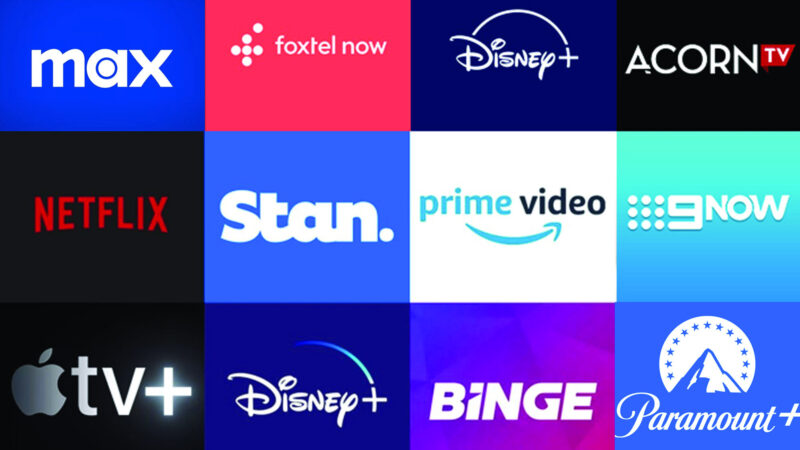A shroud of secrecy surrounds negotiations between the Labor Government and large media companies about more locally produced drama and other creative content. Andrew Gardiner reports.
The Albanese government’s self-imposed deadline ($) for local content quotas for the streaming giants quietly passed in July 2024 without any announcement. Since then, Canberra has refused to release important documents that would explain why.
What powerful force intervened? Senator Jacqui Lambie has a fair idea, and she seeks the documents to prove it in what’s turning out to be a drawn-out Freedom of Information (FOI) battle.
“I heard Minister Burke the other day telling the ABC that he believes in taking an ‘arms-length approach’ – except apparently when he is wrapping them around the US streamers,” Lambie told MWM. “This government promised they would have Aussie content quotas in place by July 2024. It’s bloody shocking!” she added with her characteristic aplomb.
Say goodbye to free sport on TV, say hello to paid streaming
There’s good, locally-produced content out there – The Last Anniversary and The Twelve come readily to mind – but only if you have a paid subscription to a select group of mainly Australia-based providers like Stan or Foxtel/Binge. With few exceptions, the rest of our media simply isn’t pulling its weight, with free-to-air TV (FTA) a virtual dead zone for locally-produced drama (soap operas aside) after the Morrison Government suspended quota regulations in 2020.
Foreign streaming channels have also dragged the chain. While local industry bodies have campaigned for mandatory local content quotas, these multinational entities lobby hard to stay on the honour system: “we’ll invest in Australian production – trust us”.
For Netflix, Disney+, Apple TV+ and Paramount+, that “trust us” investment has been little more than tokenism. Prime Video is an honourable exception.
Secret negotiations
Arts Minister Tony Burke’s refusal to release documents detailing government negotiations with media behemoths has prompted fears for the future of Australian screen production, and unease over what some see as the cosiness between media, ranging from FTA to multinational streaming behemoths, and government.
Lambie is determined to get to the bottom of how much (or little) progress there’s been on mandatory Australian content quotas on our various screens. But she’s hit a series of bureaucratic brick walls over requests for correspondence between Burke and entities like Netflix, Disney+ and our own Channels 9 and 10.
Her efforts to unravel the mystery date back to last September, when she asked under FOI for all correspondence (including emails) over a six-month period, on quotas and associated local production models, between Burke and nine streaming and media entities. Burke wrote back in November, refusing access to eight emails on the subject – six of them with attachments – that had been sent to his department, citing grounds of privacy, confidentiality and commercial sensitivity to the senders.
“I kept pushing the Minister’s office to ask them what was going on – but they were being very cagey, so I asked Rex Patrick to put in additional FOIs to find out what the hell was going on. We only got one document back that wasn’t fully redacted!”
In an appeal to the Information Commissioner, Patrick, Senate candidate for South Australia, attacked Burke’s vagueness over commercial sensitivity. “The claim … must be supported by evidence,” Patrick wrote, citing case law.
By asking for the specific reasons and evidence, Patrick was looking for what Lambie might call “the guts” of the matter: the profit margins these media behemoths and their shareholders think should be untouchable, and exempt from pesky quotas.
Then they’d share that data with the general public, asking Australians what’s more important: local screen production or multinational profits. Burke’s point blank refusal to comply is revealing, Lambie says.
“What I most want to know is what the US Streamers were saying to the Minister.
This government said we would have the quotas in place by last July before walking away from that.
“My question is: why?”
The Information Commissioner has cleared the way for the fate of these documents to be decided by the Administrative Review Tribunal (ART), where Patrick believes the need for transparency (for Australians and our screen production industry) will become abundantly clear to the presiding officer.
“The US streamers are raking it in, and the public deserves to know just how a requirement to fund local content will affect that bottom line,” he told MWM.
Public broadcasters
Even the public broadcasters, ABC and SBS, air just a handful of six- or eight-episode series each year, leaving the screen production industry on a financial precipice. Quality Australian series lasting just about the whole year on FTA are but a distant memory.
The end of quota requirements under Morrison allowed privately-owned FTA television networks to be, well, commercial. Drama is expensive; quiz shows and reality TV are not.
Foxtel’s minimum spend on drama was halved, also under Morrison, to five per cent. “They haven’t had to make more drama, so they haven’t, meaning producers are left competing for a very limited number of gigs at the streamers,” one industry source told MWM.
Screen Producers Association of Australia CEO Matt Deaner is “only too aware of the lack of transparency … around subsidies provided to US streamers, the unfair deal terms that are forced upon the domestic market, and their earnings and verifiable expenditure in this market. This situation makes it extremely difficult to understand industry trends and dynamics, let alone the implications of regulatory models put forward.”
Meanwhile, Lambie and Patrick keep plugging away in pursuit of those eight documents, sent from big media to the government, which Minister Burke doesn’t think the public deserves to see. Lambie told MWM,
If we don’t back in our Aussie Film and TV industry, we won’t have one anymore – simple as that.
But for the moment at least, those Australians who both want it and can afford it will go on paying $15 or more a month per service for what is a trickle of quality local content. You’d think that’s something Canberra would want to tackle.
An Adelaide-based graduate in Media Studies, with a Masters in Social Policy, I was an editor who covered current affairs, local government and sports for various publications before deciding on a change-of-vocation in 2002.

